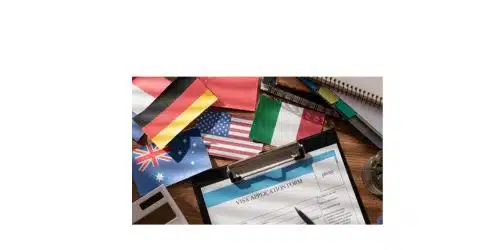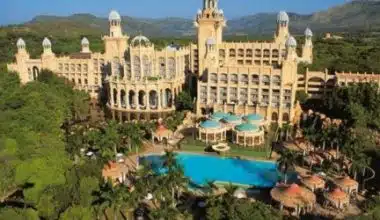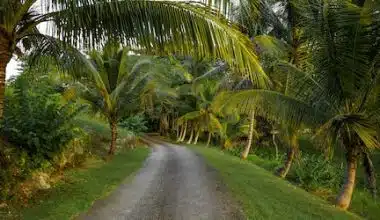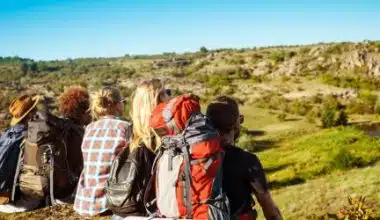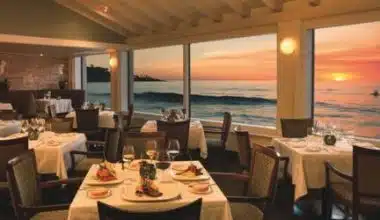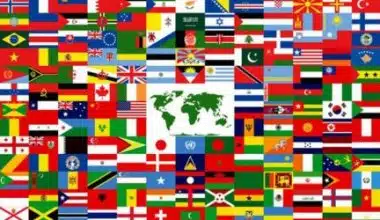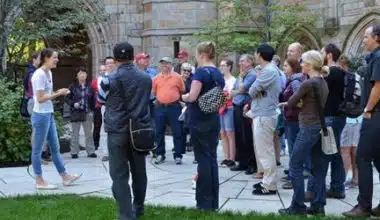Morocco has seen a significant increase in foreign visitor numbers in recent years, as many tourists seek an exciting and one-of-a-kind travel experience. Other characteristics, such as public safety and societal norms, may differ from what you’re used to if you travel to a country that checks these boxes. Morocco is a stunning fusion of African, Islamic, and French cultures that have molded the country. Despite all of this, there have always been questions about how safe Morocco is for travelers, particularly those from the United States and other Western countries.
The question remains, though, whether it is safe to travel to Morocco for Americans.
Is Morocco Safe for Americans?
As long as you understand its laws and cultural practices and follow the rules, Morocco is a safe nation to travel to. Although crime rates are low, stay careful of scam artists and pickpockets, which are popular in Morocco.
Is It Safe for American Tourists to Visit Morocco?
Morocco’s tourism industry is rapidly expanding. As a result, the country’s security has improved year after year.
Morocco has very little violent crime, and it nearly never targets outsiders. Moroccans are extremely friendly and like sharing their traditions and culture with foreign visitors.
You should not be concerned about being harassed in Morocco. More tourist cities in Morocco, such as Rabat, Marrakech, and Casablanca, have a strong tourist police presence.
This special task group is concerned with the safety of foreign tourists.
Moroccans prefer to avoid conflict with foreigners wherever feasible. They are incredibly welcoming, and visitors are well treated across the kingdom.
Even if a confrontation with a foreigner occurred, they would make every effort to de-escalate the situation. You should leave all of your significant and precious items at your hotel and only bring what is absolutely required with you.
Carry a money belt or keep your wallet in your front pocket. A slash-resistant and locked anti-theft bag is another fantastic alternative for travel. I would also recommend purchasing decent travel insurance that includes theft coverage.
Is It Safe for American Students and Expats to Visit Morocco?
Morocco attracts students and expats from all over the world, including Americans, because it is a fairly affordable destination.
The country also offers excellent and reasonably priced universities, which contribute to its cosmopolitan climate.
It is perfectly natural to wonder whether or not Morocco is safe for Americans. Morocco, in my opinion, is a very safe nation for American students and expats.
Is It Safe for American Families to Travel to Morocco?
If you’re wondering if Morocco is safe for children, don’t be concerned. Moroccans adore children. They are precious to them and have a specific position in their culture.
I would even argue that traveling with children will enhance your enjoyment of the event. In their attitude toward youngsters, Moroccans demonstrate their kind and caring side.
Moroccan culture values the family. Moroccans typically have large families and are extremely welcoming to children.
Children can thus help break the ice and stimulate communication with Moroccans, who are often very friendly and protective of families.
Another advantage of vacationing as a family in Morocco is that you will avoid the attention of scammers.
Here are some suggestions I would provide to families visiting to Morocco:
- In Morocco, avoid drinking tap water: While Moroccan tap water is generally regarded as safe, I would not recommend it for young children. It takes some time for the body to adjust to a new location’s tap water.
- Maintain your child’s fundamental vaccinations: Before traveling to this country, your children should have received their baseline vaccinations. You do not need any mandatory immunizations as an adult to travel to Morocco. However, hepatitis A and typhoid immunizations are suggested, especially if you are visiting smaller cities or rural areas or if you are an adventurous eater.
- Travel to Morocco with a first-aid kit: Scratches, cuts, and minor bruises can occur suddenly and unexpectedly. I would recommend taking a first-aid kit with antiseptic wipes, compresses, and bandages, as well as pain relievers and anti-diarrhea medication. I recommend this first-aid kit.
- Morocco’s great cities for family travel are Marrakech, Rabat, and Chefchaouen. It’s also an excellent destination for a family surfing vacation.
Is It Safe for Solo Female Travellers to Visit Morocco?
With the country’s increased tourism, it’s natural to wonder if Morocco is safe for solo female travellers.
Being a female solo traveler anywhere in the globe has its own set of dynamics and risks. Morocco is no exception.
So, what should solo female travellers in Morocco expect?
To begin with, traveling as a woman alone in Morocco can be safe and enjoyable, but it is necessary to be a little more cautious than in other regions of the world.
Here are a few things that single female tourists in Morocco should keep in mind:
#1. Catcalling
Unfortunately, catcalling is fairly widespread in Morocco. It’s a country known for its high rate of street harassment.
According to a 2017 survey, 73% of Moroccan women face harassment in public places.
That is an incredibly high figure.
The majority of the harassment will most likely consist of men complementing your beauty. Just ignore any men that approach you and try to get your attention.
#2. The dress code
It is critical for solo female travellers in Morocco to dress appropriately. To avoid unwanted attention, avoid wearing clothes that are overly exposed and cover your legs and shoulders.
#3. Walking alone at night
It is preferable to avoid wandering alone at night. Especially around the outskirts of major Moroccan cities. Make sure you know where you’re going ahead of time.
The “nice guy showing the way” is a common fraud that you may experience as a solo female traveller in Morocco.
This fraud involves a Moroccan offering you unsolicited assistance, such as pointing you in the direction of a hotel or directing you to a restaurant.
When you arrive at the hostel, the scammer will request an exorbitant tip in exchange for his services.
For example, when wandering through the alleyways of Marrakech’s historic medina with your backpack, someone approaches you and offers to guide you to your hostel.
When you arrive, he requests 30 or 50 MAD for the five minutes he spent assisting you and will not go until you pay him a tip.
I would recommend downloading Google Maps on your phone before your vacation to Morocco to help you navigate the Moroccan cities without difficulty.
One of Google Maps’ great characteristics is that it can be used both online and offline. Connect to the wifi at your hostel and download a map of the area of town you want to visit.
This map uses the GPS chip in your phone to function even when you’re not connected to the internet.
I would recommend learning a few Moroccan Arabic phrases to seek assistance if it is absolutely necessary.
Are the Cities in Morocco Safe?
Rabat, Marrakech, and Casablanca, for example, are no more dangerous than any other city on the globe.
As a foreigner, it is critical to maintain a low profile and avoid drawing unwanted attention.
As a tourist in Morocco, you can wear whatever you like, but you shouldn’t flaunt your money in the crowded markets and historic medinas.
Because of the country’s poverty statistics, many Moroccans mistakenly believe that all foreigners who visit their country are wealthy.
It is critical not to feed that myth and draw the unwelcome attention of burglars by flashing your precious possessions.
If possible, leave all of your valuables in your hotel room.
I would also advise against walking alone at night in Moroccan cities’ outskirts, as foreigners may become targets of mugging.
Morocco’s Specific Safety Concerns
#1. Women/LGBTQ+
Morocco can be extremely difficult for women. When walking through cities, women should expect hissing and cat-calling and should travel with friends whenever feasible, regardless of where or when they travel.
Women should be especially cautious in public places, such as nightclubs or other social venues.
Morocco has outlawed most forms of same-sex relationships, in part because it is a Muslim country. As a result, it is not very LGBTQ+-friendly.
#2. Religion
In Morocco, you must respect Islamic culture and customs. Furthermore, despite the fact that the country is very accommodating to Christians, the Moroccan government prohibits Christian preaching or proselytizing.
In general, it’s advisable to dress modestly and keep your beliefs to yourself in Morocco.
#3. Transportation
Morocco’s transportation is generally safe. However, while using public transportation, you should keep a check on your things or valuables.
- Taxis: During the day, taxis and the Heetch ridesharing service are largely crime-free. Never travel alone at night or in strange places. The “petit” taxis, which vary in color in the major cities (Casablanca – red, Rabat – blue, Marrakech – tan), are generally the safest modes of automotive transit.
- Buses: City buses are not considered safe; however, intercity bus companies are. Supratours and CTM are popular choices among vacationers. To be on the safe side, buy your tickets ahead of time. “For solo travelers,” Peters says, “this is the safest and most reliable way to travel.”
- Other modes of transportation: While Morocco lacks subways, “in Casablanca and Rabat, you can use the overground tram,” Peters notes. “It’s a great way to get around, but keep the usual subway precautions in mind.”
- Trains: Trains are normally safe, but keep an eye on your valuables.
- Flying: The Rabat-Sale International Airport is located north of Rabat, while the Mohammed V International Airport is located southeast of Casablanca. Regional air travel is quick, safe, and reasonably priced.
- Driving: Driving in Morocco’s main towns is semi-organized chaos better left to natives and professionals. Roads are poorly marked, and vehicles frequently engage in risky driving practices. Drive cautiously and make sure your rented automobile is properly insured. Driving at night should be avoided. The roads in the countryside are inadequately illuminated, making car-animal collisions a genuine risk.
- Accessibility/Mobility: Traveling in Morocco might be difficult for people with mobility impairments.
#4. Crime
Morocco has a low crime rate; however, keep an eye on your valuables at all times. Other suggestions include:
- Avoid dark regions and never travel alone at night.
- Keep an eye on your stuff and avoid flashing valuables.
- Take extra precautions around beaches, crowded areas, and tourist sites.
- Running: Stay in busy areas and keep an eye out for traffic. Also:
- Go with a friend.
- Jogging at night should be avoided.
- Con artists of all ages prey on travelers, claiming to be pleasant in order to steal everything they can.
- Tourists are often harassed on the street by peddlers and “guides.”
- Refuse their services politely and continue walking.
- Cyber scams: Another issue to keep an eye out for in Morocco is cyber fraud.
- Before connecting to the internet, be sure you’re on a legitimate Wi-Fi network.
#5. How to Get Around in the Cities
Morocco’s towns offer a seductive mix of exotic and cosmopolitan. They, like other major cities around the world, need you to always be aware of your surroundings.
#1. Casablanca
Casablanca is Morocco’s economic hub and largest city, as well as the location of the country’s largest slums. Travelers and Moroccans must be alert of their surroundings in “big cities” and keep an eye out for muggings and small thefts (such as phone snatching).
Casablanca lacks the allure of the other Moroccan cities and is better avoided in any case.
#2. Marrakesh
The country does an excellent job of having police, both in uniform and undercover, patrol the old city of Marrakesh, Morocco’s most popular tourist destination.
What should you keep an eye out for? Untrustworthy merchants. To avoid high-pressure sales methods, take a guided tour and be prepared to haggle.
#3. Other towns
When walking about Morocco’s other towns, such as Fez, Tangier, Rabat, and Essaouira, typical precautions should be followed. These cities are incredibly picturesque and walkable, so bring extra batteries and storage with you.
Because of its sheer enormity, Fez’s maze-like medina can be intimidating in the evening. If you are lost or feel frightened, approach a store for assistance, not a street kid. The same is true for each other’s Moroccan cities.
#6. Weather
During the rainy season from November to March, there is flooding and the occasional earthquake. The Sahara region is always hotter and dryer, with the added bonus of scorpions and snakes.
#7. Terrorist Behavior
In Morocco, there hasn’t been a terrorist assault since 2011, but there have been threats against the government. Most terrorist threats have been efficiently prevented, so travelers can normally feel safe.
Terrorists may target clubs, restaurants, places of worship, schools, hotels, movie theaters, US-branded companies, and other public venues, according to the US State Department. They also advise US citizens to stay in guarded campgrounds rather than solitary campsites.
#8. Health
It’s a good idea to get a Hepatitis A vaccination, wash your hands frequently, and keep loperamide on hand in case of traveler’s diarrhea. Before going, I normally advise individuals to read up on the CDC’s health and safety requirements.
#9. Language Problems
Because of Morocco’s language richness—Arabic, Berber, French, Spanish, and English are all widely spoken—it’s easy to become lost in translation.
One of the benefits of having a skillfully prepared tour put together for you is that you will be less likely to encounter problems due to miscommunication. It’s also reassuring to have trusted people with you when traveling to a destination like Morocco, which most people consider to be fairly exotic.
Other Concerns
- Visas: To visit Morocco, all you need is a valid passport, not a visa.
- Morocco’s official currency is the dirham: Credit cards are frequently accepted in larger cities and tourist regions, and ATMs are readily available. It’s an excellent idea to exchange roughly $100 into dirhams for little purchases and to tip service personnel.
- Be especially cautious around ATMs; only use them in crowded, well-lit areas. Cover the keyboard with your hand to prevent your PIN from being revealed.
- Political and social rallies are common in Morocco, but they are rarely aggressive or violent. American travelers should avoid protests and leave as quickly as possible. Tourists should also be extremely cautious at large-crowd activities, such as soccer games.
- Extreme Activities: As long as you have a decent sense of your fitness and take the standard precautions, you should be fine whether you spend your time surfing in Taghazout, rock climbing in the Todra Gorge, or summiting Africa’s second highest mountain, Mount Toubkal.
- The Sahara: “The most dangerous aspect of the desert is the heat.” Pack sunscreen, and if you’re traveling during the summer, make sure you have access to air conditioning. When traveling with children, use extra caution.
Is Morocco Safe for Americans? Bottom Line
Morocco checks a number of boxes for travelers looking for locations other than the well-trodden roads of Paris, London, New York, and Hawaii. It’s a safe, secure country with a lengthy, interesting history, beautiful ruins, incredible landscapes, delectable local cuisine, and wonderful weather all year.
When you combine this with its low cost and friendly, inviting hosts, it’s no surprise that it has risen to the top of travel lists for tourists from all over the world.
- BEST PLACES TO SOLO TRAVEL
- TOP 10 SAFEST COUNTRIES IN SOUTH AMERICA: The Ultimate Guide
- SAFEST CITIES IN COLORADO IN 2023
- IS DENVER SAFE? All You Need To Know
- WHAT IS A RED-EYE FLIGHT? All You Need To Know
